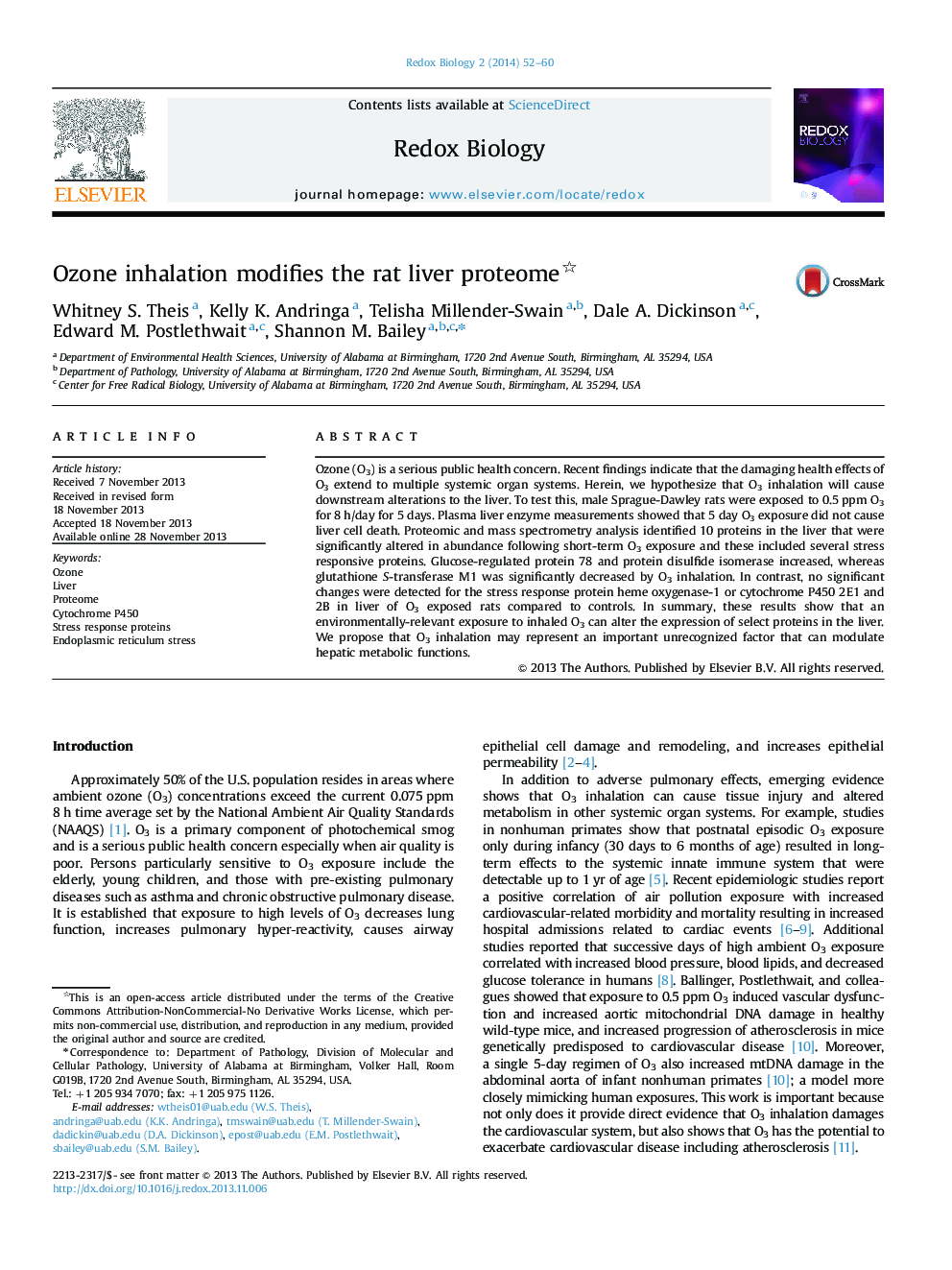| کد مقاله | کد نشریه | سال انتشار | مقاله انگلیسی | نسخه تمام متن |
|---|---|---|---|---|
| 1923005 | 1535848 | 2014 | 9 صفحه PDF | دانلود رایگان |
• Rats were exposed to filtered air (FA) or 0.5 ppm ozone (O3) 8 h/day for 5 days.
• Using this exposure protocol, O3 caused no detectable lung injury or liver cell death.
• O3 altered the expression of some drug metabolism and stress proteins in liver.
Ozone (O3) is a serious public health concern. Recent findings indicate that the damaging health effects of O3 extend to multiple systemic organ systems. Herein, we hypothesize that O3 inhalation will cause downstream alterations to the liver. To test this, male Sprague-Dawley rats were exposed to 0.5 ppm O3 for 8 h/day for 5 days. Plasma liver enzyme measurements showed that 5 day O3 exposure did not cause liver cell death. Proteomic and mass spectrometry analysis identified 10 proteins in the liver that were significantly altered in abundance following short-term O3 exposure and these included several stress responsive proteins. Glucose-regulated protein 78 and protein disulfide isomerase increased, whereas glutathione S-transferase M1 was significantly decreased by O3 inhalation. In contrast, no significant changes were detected for the stress response protein heme oxygenase-1 or cytochrome P450 2E1 and 2B in liver of O3 exposed rats compared to controls. In summary, these results show that an environmentally-relevant exposure to inhaled O3 can alter the expression of select proteins in the liver. We propose that O3 inhalation may represent an important unrecognized factor that can modulate hepatic metabolic functions.
Figure optionsDownload as PowerPoint slide
Journal: Redox Biology - Volume 2, 2014, Pages 52–60
